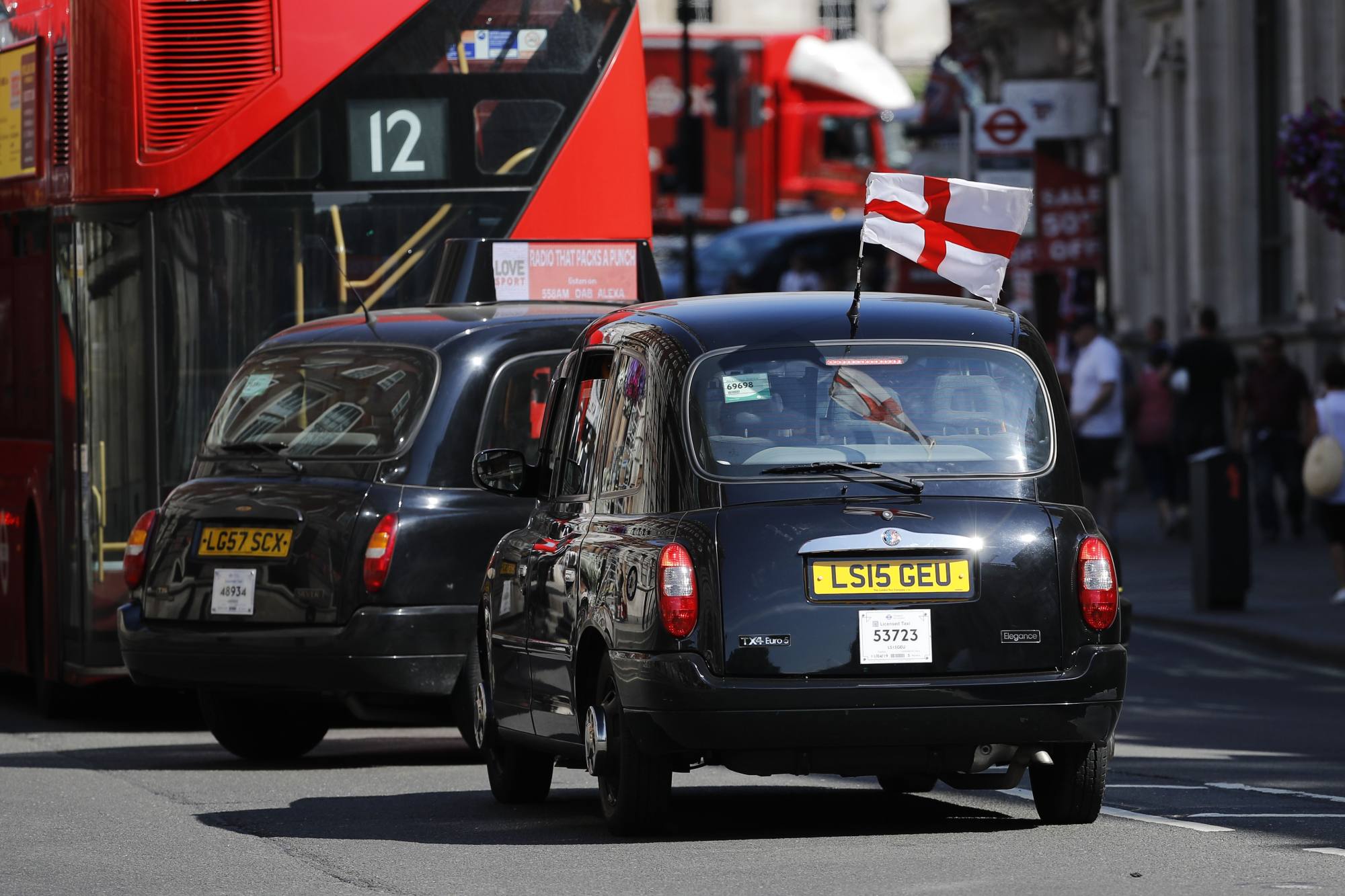
Uber strikes deal with London drivers to put black cabs on app
- Uber joins other ride-hailing companies including Israeli start-up Gett and Germany’s Freenow, which already offer on-demand black cabs in London
- Black cabs have been on the streets of London since at least the early 20th century, when they replaced for-hire horse-drawn carriages
If you want to hail one of London’s iconic black cabs, you’ll soon be able to do so by pulling up the Uber app.
Uber Technologies launched in London more than a decade ago but has faced stiff resistance from drivers of the bulbous black cabs, also known as hackney carriages, who must pass a gruelling test of the city’s streets to obtain a license.
Starting in early 2024, Uber will offer riders the option of choosing a black cab as part of the company’s expansion in recent years into a one-stop transport app including bookings for intercity trains, the Eurostar and car rentals.
Uber focuses on 2023 profits as pandemic pain eases
London was one of the last major holdouts in partnering its local taxi drivers with Uber. The San Francisco-based company has already struck similar deals in Paris, Rome, New York and other cities in 33 countries. Uber joins other ride-hailing companies including Israeli start-up Gett and Germany’s Freenow, which already offer on-demand black cabs in London.
Black cabs have been on the streets of London since at least the early 20th century, when they replaced for-hire horse-drawn carriages. Drivers are licensed by the city regulatory body Transport for London, which requires them to learn the “Knowledge,” a mental encyclopaedia of some 25,000 streets as well as all landmarks within six miles of Charing Cross. Often called one of the most difficult tests in the world, it typically takes three to four years to learn. Uber drivers, meanwhile, rely on GPS to get around.
Licensed black cabs, which are traditionally slightly more expensive than minicabs, also have privileges including being able to pick up customers from the street rather than only with pre-booking.
Uber has had a tortured history in London, where cabbies have vehemently protested the app’s presence in the city for fear of losing their livelihood and out of concern the app’s drivers do not adhere to strict safety standards and oversight. Hundreds of drivers demonstrated in London in 2014 as part of Europe-wide protests against Uber. Two years later, 8,000 protesting drivers again blocked traffic in central London.
The company has made attempts to recruit hackney carriage drivers in the past. In 2016, Uber gave them the option of using the app without paying a commission for 12 months, an offer that was later dropped.
As Uber tussled with drivers, it was also facing a stand-off with the city’s regulators. In 2017, Uber was stripped of its license after TfL concluded the company was “not fit and proper” to have one.
Just two years later, Uber again lost its license, with TfL saying its “pattern of failures placed passenger safety and security at risk”.
Uber subsequently won an 18-month permit to operate in London and last year was granted a 30-month permit, seemingly ending its years-long spat with the regulator.
Uber’s move to allow black cabs to register on the app has been criticised by the Licensed Taxi Drivers Association, a trade body representing cab drivers in London. Steve McNamara, general secretary of the organisation, said no taxi trade groups were consulted before the announcement.

“We have no interest in sullying the name of London’s iconic, world-renowned black cab trade by aligning it with Uber, its poor safety record and everything else that comes with it,” he said.
But some London cabbies are eager to get on the app, according to Uber.
Hameed Hameedi was the first London cab driver to sign up with Uber. He completed the Knowledge in 2015 and has previously worked as a private hire driver. “A lot has changed since Uber first came to London,” Hameedi said in a statement provided by Uber. “Nowadays more passengers than ever are using apps so Uber opening up to black cabs will be a huge advantage to the trade.”
Uber is opening the app to the more than 15,000 London taxi drivers licensed by the TfL, adding to the more than 100,000 drivers it has in the UK. The company counts around 6.5 million active drivers and couriers globally, according to its latest earnings report.
Drivers that sign up with Uber will be sent a regular taxi trip with the destination and fare range set up front. New drivers will not have to pay a commission for the first six months.
In Europe and in the Middle East, 10 per cent of Uber trips are completed by taxi drivers, the company said.

